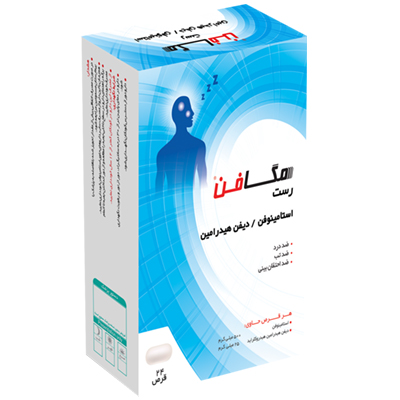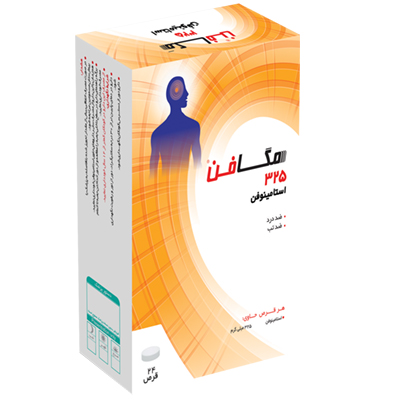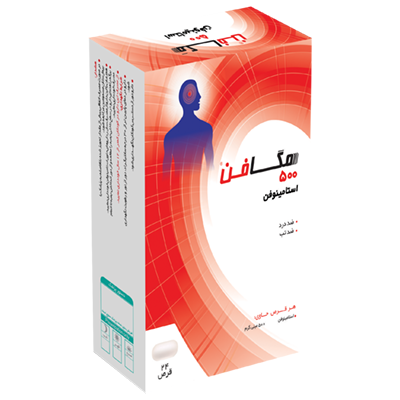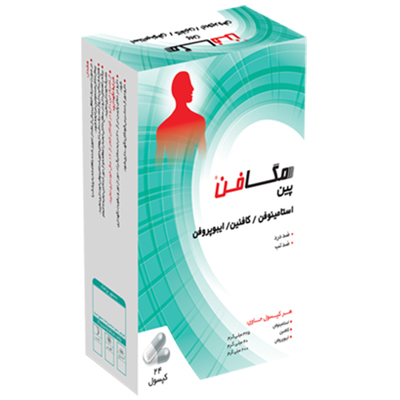Psychiatric problems have always been a large part of human social problems, and they can be treated using a variety of methods. Drug therapy and psychotherapy For example, in drug therapy, drugs such as antidepressants and antipsychotics can be used, and psychotherapy with family considerations, cognitive-behavioral therapy, and psychosocial rehabilitation such as life skills training and other social supports can be used. Therefore, education of the community and the patients' families leads to timely access to treatment. This article introduces and explains the functioning of these two types of drugs.
What are antidepressant medications?
Antidepressants are a group of medications used to treat psychiatric disorders such as: Types of depression and anxiety are used, which of course should be Diagnosing depression through tests Determined by a specialist doctor. . These drugs affect the brain's chemical system and have a positive effect on a person's mood by changing the chemical levels of brain neurotransmitters such as serotonin, norepinephrine, and dopamine. These drugs are usually used to treat people suffering from certain psychiatric disorders.
Types of antidepressants
In some cases, mental health problems such as depression and anxiety are caused by low levels of the neurotransmitter serotonin in the brain. Some antidepressants increase serotonin levels in the brain by reducing its reuptake. This class of antidepressants, known as selective serotonin reuptake inhibitors (SSRIs), includes drugs such as fluoxetine, sertraline, paroxetine, and citalopram.
Another class of antidepressants are the tricyclics, which have been around since the 1950s. These drugs also work by reducing the reuptake of serotonin and norepinephrine, increasing the levels of these neurotransmitters in the brain. Some tricyclics include amitriptyline, nortriptyline, and doxepin.
Another class of antidepressants is known as serotonin-norepinephrine reuptake inhibitors (SNRIs). These drugs increase the levels of these chemicals in the brain by reducing the reuptake of norepinephrine and serotonin. Some SNRIs include venlafaxine and duloxetine.
There is also another class of antidepressants known as monoamine oxidase inhibitors (MAOIs). These drugs work by reducing the activity of the enzyme monoamine oxidase, increasing the levels of brain chemicals such as serotonin, norepinephrine, and dopamine. Some MAOIs include Phenelzine, Tranylcypromine, and Isocarboxazid.
Antidepressants are most often used to treat depression and anxiety disorders. However, these medications are also used to treat many other psychiatric disorders, such as eating disorders, aggression, sleep disorders, nerve pain, and migraines.
Antidepressants should be prescribed and taken under the supervision of a doctor, as these medications can have dangerous side effects, including dry mouth, sweating disorders, weight gain, changes in sleep and mood. It should also be noted that for some antidepressants, such as MAOIs, drug-drug or drug-food interactions should also be considered.
Antidepressants include sertraline, fluoxetine, and paroxetine. Each of these drugs, when taken, causes changes in chemical mediators in the brain and improves a person's mood.

Are antidepressants addictive?
Antidepressants are generally considered non-addictive medications. However, to prevent drug dependence, antidepressants should be taken under the supervision of a doctor and the doctor's instructions should be followed carefully. Also, the process of discontinuing the drug should be done gradually, depending on the patient's condition, and according to the doctor's instructions, to avoid side effects caused by drug withdrawal.
What are antipsychotic medications?
Antipsychotics are a class of medications used to treat severe psychological disorders such as personality disorders, Schizophrenia, Bipolar, Major depression Antipsychotics affect the brain's chemical system and improve a person's mental state by regulating the activity of brain chemicals such as dopamine and serotonin.
Antipsychotics include clozapine, haloperidol, risperidone, and quetiapine. Each of these drugs has positive effects on a person's mental state by regulating the levels of brain chemicals.
Types of antipsychotic drugs
Antipsychotic medications are divided into two general categories: typical antipsychotics and atypical antipsychotics.
Atypical antipsychotics are a class of antipsychotic medications that have been on the market since the 1990s. Unlike dopamine-blocking drugs, which were mostly developed in the 1950s and 1960s, these drugs affect several chemicals in the brain, including serotonin and dopamine.
Atypical antipsychotics help reduce the risk of unwanted side effects, such as parkinsonism, compared to dopamine blockers. Also, unlike dopamine blockers, which may cause weight gain, some atypical antipsychotics may have less of an effect on weight changes.
Atypical antipsychotic medications include medications such as Clozapine, Risperidone, Olanzapine, Quetiapine (Quetiapine), Aripiprazole, and Ziprasidone.
The prescription and use of atypical antipsychotic medications should also be supervised by a specialist physician, and the clinical condition and needs of each patient should be considered to select the appropriate medication and dosage.
Concomitant use of antidepressants and antipsychotics
Taking antidepressants and antipsychotics together may cause side effects in some cases. For example, taking antidepressants and antipsychotics together may increase the risk of side effects such as blurred vision, seizures, muscle weakness, and changes in blood pressure. Also, taking these two types of drugs together may increase the risk of depression and worsen symptoms of mental disorders.
As a result, you should discuss the benefits and risks of antidepressants and antipsychotics with your doctor before taking them together. You should also follow your doctor's instructions carefully and report any side effects to your doctor.
Is it possible to take antidepressants and antipsychotics without a prescription?
It is not recommended to take antidepressants and antipsychotics without a doctor's prescription. These drugs have dangerous side effects and complications and can cause serious health problems. In addition, it is very important to determine the dosage and duration of use of antidepressants and antipsychotics based on the clinical condition and needs of each patient, and taking these drugs without doctor's advice may cause dangerous side effects.
Therefore, to take these medications, you must definitely consult your doctor and follow his instructions. Also, you should purchase the medications prescribed by the doctor from reputable pharmacies and never use this medication arbitrarily.
How can the side effects of antidepressants and antipsychotics be reduced?
To prevent side effects from antidepressants and antipsychotics, you can take the following steps:
- Take medications as prescribed by your doctor and according to your doctor's instructions.
- If you experience side effects, tell your doctor or pharmacist and avoid changing the dose or stopping your medication on your own.
- To prevent side effects from taking multiple medications from different categories, it is recommended that all medications the patient is taking be reviewed by a pharmacist or physician for drug and food interactions.
- If you have been prescribed a medication and experience severe side effects while taking it, inform your doctor or pharmacist and, if necessary, follow your doctor's instructions to replace the medication with another medication.
- To reduce side effects, you can take the medications with food.
- Your doctor may prescribe other medications to control possible side effects.
- Follow your diet carefully and try to reduce alcohol and tobacco consumption, as these can exacerbate the side effects of antidepressant and antipsychotic medications.
- Try to get enough rest and exercise daily.
- If you experience any side effects, see your doctor and never change your dosage or stop taking your medication on your own.
Conclusion
Antidepressants and antipsychotics both play a role in the treatment of mental disorders, but their uses and mechanisms of action are different. Antidepressants are commonly used to treat depression and anxiety, and they improve mood by affecting neurotransmitters such as serotonin and norepinephrine. In contrast, antipsychotics are used to manage disorders such as schizophrenia and bipolar disorder, and they reduce psychotic symptoms such as hallucinations and delusions by regulating dopamine and other brain chemicals. Both classes of medications should be taken under the supervision of a doctor, as their effects and side effects vary depending on the individual's condition.





